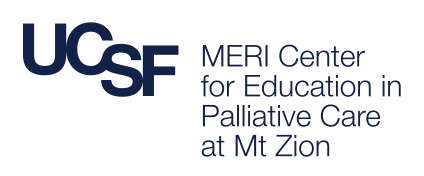HOW can we honor your wishes if we don’t know what they are?
THURSDAY, April 16, 2020 is “National Healthcare Decisions Day.” The MERI Center has been planning a number of activities for UCSF that now of course, must be postponed. However, the importance of completing Advance Directives for Healthcare has never been more critical. Here and now, in the “time of COVID-19” as we will all remember it well, the necessity of conversations about what we all would want or not want, in terms of medical interventions, is indeed at its peak. As is the importance of having our wishes in writing for the healthcare system.
Below you will find some basic information and history about Healthcare Decisions day from two of the prominent organizations who have fostered the publicity of this day since its inception.
IF you have not completed your own Advance Directive for Healthcare and would like assistance, please consider the online (or in-person, once that can happen again) “What Matters Most” workshops offered by the MERI Center.
From the Conversation Project:
https://theconversationproject.org/nhdd/
“National Healthcare Decisions Day (NHDD) exists to inspire, educate and empower the public and providers about the importance of advance care planning. NHDD is an initiative to encourage patients to express their wishes regarding healthcare and for providers and facilities to respect those wishes, whatever they may be.
NHDD was founded in 2008 by Nathan Kottkamp, a Virginia-based health care lawyer, to provide clear, concise, and consistent information on healthcare decision-making to both the public and providers/facilities through the widespread availability and dissemination of simple, free, and uniform tools (not just forms) to guide the process.”
From the Coalition for Compassionate Care of California:
https://coalitionccc.org/2020/04/covid-19-conversation-toolkit/
Advance Directive vs. POLST
Once the conversation is had, completion of either an advance health care directive (AHCD) or POLST helps to ensure the patient’s wishes will be recognized and honored. Make sure to use the form(s) appropriate for the patient.
- An Advance Directive (also known as an Advance Health Care Directive) can be completed by anyone age 18 or over, and serves one or both of these functions:
- Durable Power of Attorney for Healthcare (to appoint a health care agent)
- Instructions for Health Care (to indicate your wishes)
- POLST (Physician Orders for Life-Sustaining Treatment) is a medical order specifically designed for people who are elderly, seriously ill or medically frail.
While AHCDs and POLST have many similarities, there are several key differences.
AHCD
- Appropriate for anyone age 18 or older
- Provides general instruction for medical treatment
- Must be signed by the individual and two witnesses or a notary
POLST
- For seriously ill/frail, at any age
- Actionable medical orders that transfer across care settings
- Must be signed by the individual or their medical decisionmaker AND a physician, nurse practitioner or physician assistant
Other MERI Center Advance Care Planning Resources:
